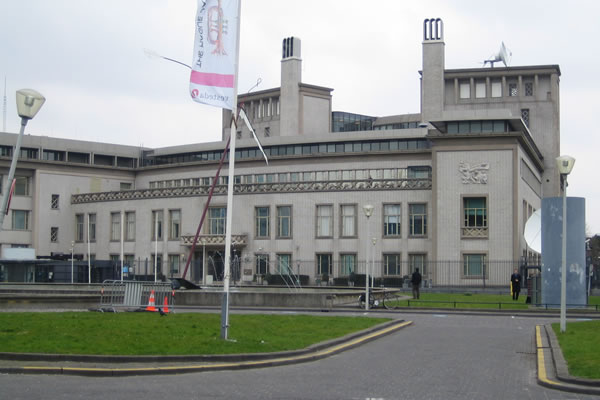Home
INTERNAL MATTER OR PUBLIC INTEREST?
Run-up to presidential elections at the Tribunal (1)
Even though the election of the new president has been declared an ‘internal matter for the Tribunal', it is an open secret that for the first time there will be two separate presidential tickets. At the plenary session on 1 October, the judges will choose either for the incumbent president and vice-president, Meron and Agius, or for the challengers, Kwon and Orie
 ICTY headquarter in Den Haag
ICTY headquarter in Den Haag ‘The presidential elections are an internal matter for the Tribunal and further details will not be made public’, said Magdalena Spalinska, the Tribunal’s spokesperson last week when she was asked by a journalist when the new president would be elected and who the candidates were.
‘An internal matter for the Tribunal’? With all due respect, the presidential election is not and cannot be an internal matter. On the contrary, it is a matter of public interest not only in the countries of the former Yugoslavia, but also in the context of the Tribunal’s legacy to international criminal justice.
The Tribunal’s basic documents, the Statute and the Rules of Procedure and Evidence, do not stipulate that the presidential election is an ‘internal matter’ whose ‘details are not to be made public’. On the contrary, those publicly available documents state that permanent judges elect the president from amongst their number. The president is elected for a term of two years and may be re-elected once. If no judge obtains a majority in the first ballot, the second round is limited to the two judges who obtained the greatest number of votes on the first ballot. The procedure to be followed if the second ballot is tied is also dealt with there, but we will come back to it later.
It is true that in the past two decades the results of the vote have never been made public. That is, if the votes were cast at all, since most of the presidents to date have been elected by acclamation based on the previous agreements, not to say "deals", between the judges. It is also true that until these elections, there was no real interest who are the candidates: it was believed that among the judges elected by the UN General Assembly there were no crucial differences in the interpretation of law that could divert the Tribunal from its established course.
How wrong and naïve this belief was is shown in the balance sheet for the past two years. It includes series of problematic judgments, to use the mildest term, the ‘Harhoff affair’, the slump in the morale among the Tribunal’s staff and a further slide in the Tribunal’s rating not only in the countries of the former Yugoslavia. As it turned out, the President, though only the first among equals, could indeed steer the institution away from the course, despite all the restrictions imposed by the Statute and the Rules (the President must consult with the Bureau, composed of other judges, on ‘all issues important for the functioning of the Tribunal’. In the past two years this has largely not been the case).
This is precisely why there is a clear public interest in the forthcoming presidential elections. Not only in the countries of the former Yugoslavia, the region that one of the former presidents, Gabrielle Kirk McDonald, called the Tribunal’s ‘constituency’. Three months ago, the qualified part of that 'constituency', comprising more than a hundred associations of victims and non-governmental organizations from BH, Serbia and Croatia, urged the UN Secretary General to remove the incumbent Tribunal’s President, but there has been no response from New York.
The answers to the questions we ask at the beginning of this text are an open secret at the Tribunal. The plenary meeting when the permanent judges will elect the new president has been scheduled for 1 October 2013. For the first time in the Tribunal’s history there will be two separate presidential tickets vying for the post of the president and vice-president: the incumbents, President Meron and Vice-president Agius, and the challengers, judges Kwon and Orie.
More on the candidates, their prospects and the factors that may influence the outcome... in the next installments of our 'pre-election serial'.
Linked Reports
- Case : Miscellaneous
- 2013-09-06 DUTCH RESPONSIBLE FOR DEATHS OF THREE SREBRENICA MEN
- 2013-08-27 HOW TO RESTORE MORALE AT TRIBUNAL
- 2013-08-22 MORALE SLUMP AT THE TRIBUNAL
- 2013-09-24 TWO TICKETS, FOUR CANDIDATES
- 2013-09-25 UNPREDICTABLE OUTCOME OF THE HAGUE 'CONCLAVE’
- 2013-09-29 A PROPER LESSON TO ‘OLDER BROTHER’
